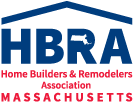HBRAMA President Michael Duffany recently testified at the State House on Governor Healey’s omnibus housing legislation, House Bill No. 4138, the Affordable Homes Act. This landmark bill authorizes $4.12 billion in bond funding to increase the supply of housing, rehabilitate and modernize public housing, and support affordable housing opportunities, but also recommends policy initiatives to address fair housing concerns, enable accessory dwelling units statewide, and allows cities and towns to raise revenue to fund local housing projects.
In his remarks, Duffany expressed HBRAMA’s support for the Healey-Driscoll Administration’s efforts to put forward a bold measure to address the Commonwealth’s housing crisis. He cited the association’s support for many of the bill’s provisions, including:
- A state override of home rule to allow for accessory dwelling units by right in every residentially zoned district within a city or town;
- $800 million in new capital authorization for the Affordable Housing Trust Fund;
- $175 million for the HousingWorks Infrastructure Program to fund municipal infrastructure projects to encourage denser housing development;
- $100 million for the CommonWealth Builder Program at MassHousing to spur construction of affordable homeownership opportunities in Gateway Cities and other similar markets;
- $35 million in new capital authorization for Housing Choice Grants;
- $20 million in new capital authorization for the 40R Smart Growth Housing Trust Fund;
- A new Homeownership Tax Credit designed to produce homes affordable to first-time homebuyers earning not more than 120% of AMI;
- A Seasonal Communities Local Option Property Tax Exemption for the development of year-round rental units;
- Requiring the Executive Office of Housing and Livable Communities to prepare a statewide housing plan every 5 years; and
- Establishing a temporary streamlined process for the disposition of state land for housing purposes.
While Duffany said there’s much in the Affordable Homes Act the association supports, he did go on record with HBRAMA’s opposition to two provisions that it believes are contradictory to the goals of increasing housing production and making housing more affordable.
The proposal to allow cities and towns to impose a local tax on real estate transfers to fund affordable housing projects will hurt potential homebuyers by increasing prices and reducing inventory, said Duffany. The association is member of a coalition that opposes the transfer tax that includes the Massachusetts Association of Realtors, NAIOP Massachusetts, the Massachusetts Bankers Association, the Greater Boston Chamber of Commerce and others.
Duffany also testified in opposition to a provision in the bill that would amend the Zoning Act to lower the threshold for the adoption of inclusionary zoning ordinances and bylaws. He explained that mandating inclusionary zoning without a density bonus will only serve to raise the cost of a new home or apartment to market rate buyers and renters and, in some instances, make a project uneconomic.
Finally, Duffany recommended the Affordable Homes Act be amended to include a number of policy proposals that would especially help facilitate the production of new single-family homes. They included:
- Amend the Smart Growth Zoning and Housing Production Law to increase the amount of the zoning incentive payments and housing production bonuses paid by the commonwealth to municipalities for adopting a smart growth or starter home zoning district;
- Amend the Smart Growth School Cost Reimbursement Act to provide that a city or town that has established a starter home zoning district be eligible to receive smart growth school cost reimbursement from the commonwealth;
- Establish a state tax credit for builders who build new starter homes in compliance with the Municipal Opt-in Specialized Stretch Energy Code similar to the federal New Energy Efficient Home Credit (Internal Revenue Code, Section 45L);
- Amend the Zoning Act to provide that adjacent lots under common ownership not be treated as a single lot, for local zoning purposes, if at the time of recording or endorsement conformed to then existing requirements of area, frontage, width, yard, or depth, where each such lot has at least 10,000 square feet of area and 75 feet of frontage and is located in a zoning district that allows for single-family residential use, provided that any single-family home constructed on said lot be built to the specifications of Chapter 40Y, the Starter Home Zoning District Act.
A copy of Duffany’s written testimony can be found [here]. A copy of the coalition statement in opposition to the real estate transfer tax can be found [here].

